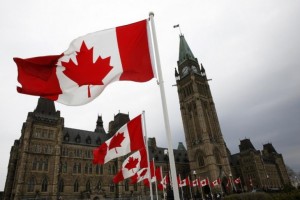CONFERENCE GOAL:
We are interested in looking further into what it means to be Canadian. What defines Canada as a nation and what defines us as Canadians? Where does our identity come from? How does our past affect our present and our future? How can we improve our ‘Canadian Identity’? We hope to examine how literature and story play a role in answering some of these above questions.
AREA OF RESEARCH:
In Canadian Literature, Rymhs’ examination of cosmopolitanism and indigeneity addresses some of these issues. The association between cosmopolitanism and a “postracial” society is troubling for some (Rymhs 123). The piece notes how indigenous people are much more confined to organizations and spaces such as band councils and reserves, which changes how they view place (123). Finally, the importance of the ‘translocal’ (a notion by Nestor Garcia Canclini) is presented as an addendum to the wider understanding of populations in the face of globalization (124).

Utilizing Rymhs’ analysis of cosmopolitanism and indigeneity as our primary source, our team will aim to further disclose what it means to be Canadian and take on the Canadian Identity. As the video in Mallinder’s article contends, the defining characteristics associated with the Canadian identity typically are: multiculturalism, friendliness, acceptance, democracy, and hockey to name a few. However, while these are prototypical characteristics that may distinguish us from other nations, further analysis and research must be conducted on the implications of our current Canadian identity, and the ways in which we can improve it for the better. With particular reference to Aboriginal and Non-Aboriginal relations, our conference will be rooted in articulating the relationship between cosmopolitanism and indigeneity; that is, how establishing a common ground between these two juxtaposing concepts has the power to not only change the way in which we view Aboriginal and Non-Aboriginal relations, but to aid in developing a better understanding of our Canadian identity, and what both aspects contribute to the future of Canadian literature.
Works Cited
Golden Jubilee of the Canadian Flag. Credit: International Business Times/Flickr. 11 February 2015. Web. 08 April. 2016
Mallinder, Lorraine. “What does it mean to be Canadian?” BBC News. BBC, 17 May 2012. Web. 08 April 2016.
CaitlinBennett
April 19, 2016 — 1:20 am
Hi team!
I think you guys have such a great research topic. On a personal level, defining my identity as a Canadian has always been something I find difficult. I think a lot of that comes from the juxtaposition between my ultimately European ethnicity and my lengthy family history in Canada; it gives me the feeling that the land itself is not my home yet it also is. I think you guys make a great point about the relationship between cosmopolitanism and indigeneity and how they oppose each other. I look forward to partnering with you guys and seeing how you’ve explored this! I think finding common ground in the Canadian identity is an important key to bettering relations between indigenous and non-indigenous people.
Caitlin
NatalieDee
April 19, 2016 — 1:38 pm
Hey Caitlin!
Thanks for commenting. One of the reasons why we chose this topic, I think, is because the idea of Canadian identity itself isn’t something strictly definable–everyone has a different perspective on it, which makes it an interesting topic of conversation. You also make a good point about the relationships between indigenous and non-indigenous and how common ground is important to improve relations–in a country such as Canada with so many immigrants and differing perspectives, common ground is hard to come by.
Thanks for your thoughts!
-Natalie